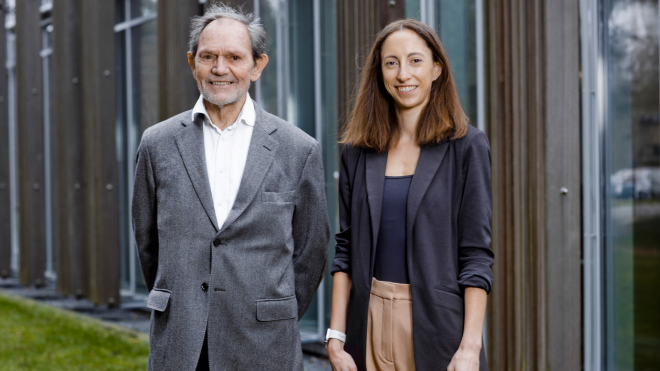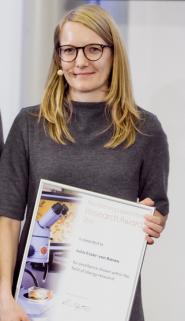
The Henning Løwenstein Research Award
Watch previous award ceremonies
The Henning Løwenstein Research Award is a biennial award given to a young scientist who has shown excellence within the field of allergy.
Over the last few decades allergy has increased in prevalence to become the most common chronic disease in modern societies. The causes for this sudden change are not entirely clear, although they seem to be linked to ‘modern lifestyle’.
It appears that allergy immunotherapy is the only treatment to treat the cause, induce immunological tolerance and to prompt disease modification. Disease modification implies long term effect, prevention of asthma in children with allergic rhinitis and prevention of new allergies.
In ALK we believe that reinforced efforts in research on the characteristics and treatment of respiratory allergic disease will lead the way for future achievements to the benefit of people with allergies all over the world.

Previous award ceremonies and winners
2024: Kelly Bruton, Stanford University, United States of America
2021: Julia Esser-von Bieren, Technical University, Munich, Germany
2019: Kornel Golebski, University of Amsterdam, the Netherlands
2015: Stefanie Eyerich, Technical University and Helmholtz Center, Munich, Germany
2013: Bianca Schaub, Ludwig-Maximilian-University, Munich, Germany
2011: Zoulfia Allakhverdi, University of Montreal, Canada, and Natalija Novak, University of Bonn, Germany
2009: Stephen J Till, Imperial College, London, United Kingdom
2007: Barbara Bohle, Medical University of Vienna, Austria
2005: Omid Akbari, Harvard University, United States of America
2004: Christopher Lynn Kepley, Commonwealth University of Virginia, United States of America
2003: Erika Ganglberger, University of Vienna, Austria
2002: Miriam Fleur Moffatt, University of Oxford, United Kingdom
2001: Eckard Hamelmann, Humboldt-University of Berlin, Germany
2000: Mark Larché, Imperial College, London, United Kingdom
